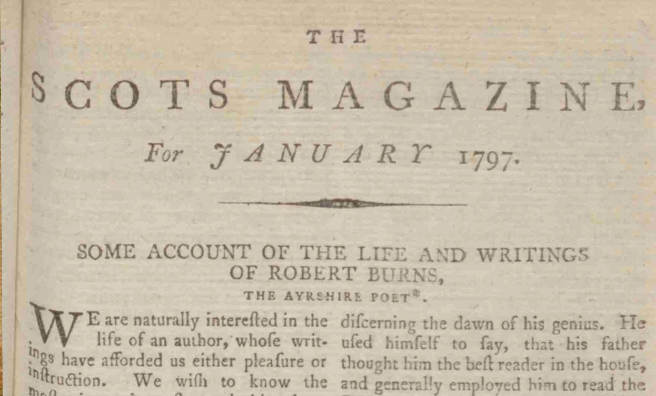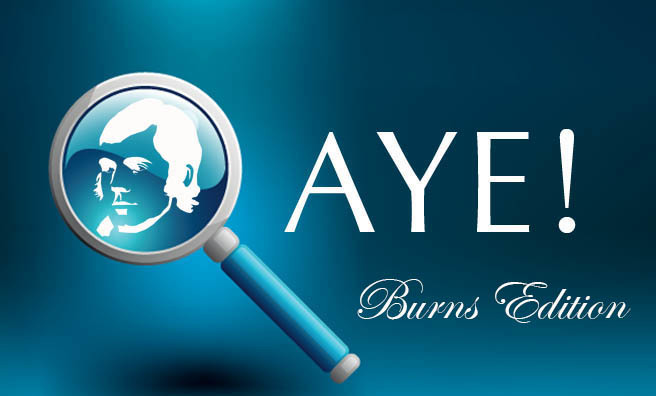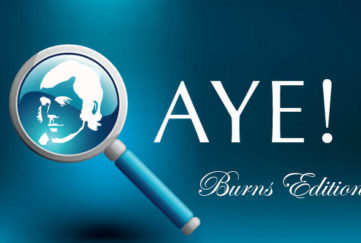An Homage To Burns

In 1796 Scotland mourned the death of Robert Burns, and so too did The Scots Magazine, dedicating six pages to his obituary. Here is its final message…
Upon the whole, we must express our opinion, that the distinguising excellence of Burns’ poems, consists in his just and beautiful reflections.
There is not, perhaps, one poem in the book, in which something moral does not occur, and something which the reader would not wish to remember.
These reflections are not strained, or fought for, they are natural, and often introduced, most happily, amidst the excursive flights of fancy.
Though Burns wrote with fluency and ease, yet he considered it below him to be an author by profession, or to write for gain.
A friend knowing his family to be in great want, urged the propriety, and even necessity, of publishing a few poems, assuring him of their success, and showing the advantage that would accrue to his family from it.
His answer was, “No, if a friend desires me, and if I’m in the mood for it, I’ll be d – – d if ever I write for money.”
In thus endeavouring to make our readers acquainted with the character of Burns, we have divested ourselves of all prejudice and partiality. If we have said anything to his discredit, not well-founded, we should be extremely sorry, and will most readily retract.
In estimating his merits, we hope we have not exceeded the opinion and judgement of anyone better able and better entitled to judge.
We shall conclude this account by inserting the Bard’s epitaph, which Burns meant for himself, and which is very applicable to his character.
Is there a whim-inspired fool,
Owre saft for thought, owre hot for rule,
Owre blate to seek, owre proud to snool,
Let him draw near;
And owre this graffy heap sing dool,
And drap a tear.
Is there a Bard of rustic song,
Who, noteless, steals the crowds among,
That weekly this area throng,
O, pass not by!
But, with a frater-feeling strong,
Here heave a sigh!
Is there a man, whose judgement clear,
Can others teach, the course to steer,
Yet runs, himself, life’s mad career,
Wild as the wave;
Here pause! – and, thro’ the starting tear,
Survey this grave.
The poor inhabitant below,
Was quick to learn, and wife to know,
And keenly felt the friendly glow
And softer flame;
But thoughtless follies laid him low,
And stain’d his name!
Reader attend! – Whether thy soul
Soars fancy’s flight beyond the pole,
Or, darkling, grubs this earthly hole,
In low pursuit:
Know, prudent, cautious, self-control
Is wisdom’s root.
More Burns
“…if I am not greatly deceived,
I think I may safely pronounce him a genius of no ordinary rank.“
Click here to read our First Review of Burns’ poetry from 1786!







